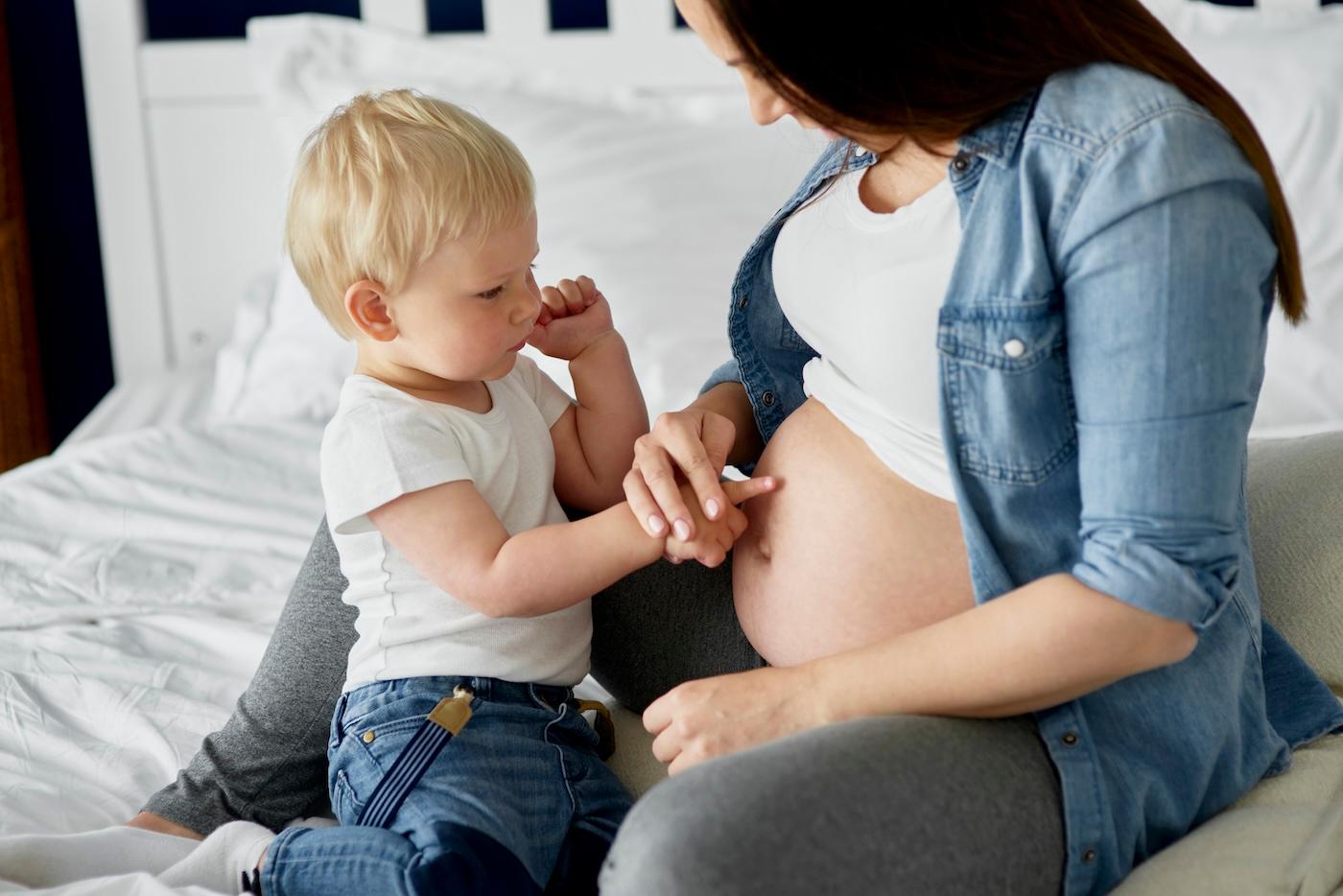TODDLER
How to Help Your Child Overcome Fears
If your child’s fear suddenly pop up out of nowhere, try to figure out if there are problems you need to address.

Written by
Dr. Harvey Karp

Billy was 4-years-old and always a little anxious. He’d watch other kids for weeks before he screwed up the courage to try a new swing or slide. And he hated loud noises like fireworks.
It took Billy 90 minutes to fall asleep each night. He never had a teddy as a little toddler, but insisted on holding his mom’s hand until he fell asleep.
Billy’s mom tried the “crying it out” technique once when he was 2 1/2, under pressure from her family. He cried for 2 hours and took 2 giant steps backward, becoming much more anxious for months about separating from his mom!
Over time, Billy gradually got better and his bedtime routine eventually dropped to 30 minutes.
But one night while he was sleeping, his dad burned some toast and set off the smoke alarm. Billy woke sobbing in panic. After that, his routine went back to 90 minutes, and he needed to hold his mom’s hand again for almost 5 weeks.
Few grown-ups can remember being 1-year-old, in a dark room, alone and terrified of being separated from Mom and Dad. But from a little kid’s point of view, it must be very scary.
As your toddler toddles away and begins exploring the world, it must be bewildering—and frightening—to suddenly turn around and find yourself all alone. That’s especially true for sensitive and cautious tots, like Billy. No wonder “Where’s Mommy?” can suddenly escalate into a tidal wave of terror: “WHERE’S MOMMY?!!”
Separation anxiety is very, very common. It peaks at 15-30 months. It’s especially common after trips, illnesses or big changes like a move, new school or new baby.
But separation isn’t the only fear that grips little kids. By the time your angel reaches 2 or 3, he’ll encourage many more things to worry about, from thunder to mean dogs to monsters, dinosaurs and bugs.
And it doesn’t stop there. At 3-4 years new worries just keep coming! Three-year-olds increasingly realize that they’re smaller, weaker and slower than everybody (except a “dumb little baby”). No wonder they suddenly start to fret about robbers, witches and bad people.
New worries may also be triggered when a child feels anger or pressure from his parents (for instance, because of difficulties with toilet training).
Older toddlers also experience fears because of something called projection. They know they shouldn’t bite or hit, but the desire to do so may still well up inside. So, to push away their temptation to “do something bad,” they project the urge from themselves onto an assortment of imaginary meanies. (“The monster took my toys, and he tried to bite me!”)
Cautious kids have more fears—and these fears are usually worse and last longer. (On the other hand, you may wish your bouncy, confident tot were a little more afraid…so he wouldn’t try jumping off the playground slide just for fun!)
Whatever the reason, young children have a new sense of vulnerability that can trigger worries that were never there before. The key to helping any child get over these fears is to go at his pace, boosting his confidence in sure, steady baby steps.
How to Get to the Heart of Your Child’s Fears
Even the most cheerful little kids have fears. But if your child’s fear suddenly pop up out of nowhere, try to figure out if there are problems you need to address. Is there a bully at preschool…or is the new babysitter mean? Was your tyke traumatized by a big storm or an earthquake? Did she watch a scary movie, or hear you and your partner arguing? Did she overhear you talking about a burglary in the neighborhood? Or is a relative abusing her?
You can also ask your child what she’s afraid of, but don’t push too hard for an answer. Kids often have a hard time expressing their fears.
If your tot is in preschool, ask the teachers how things are going there. And if your child has a major case of separation anxiety, try spending some time with her in the classroom.
Also, back off on pressures that may be stressing your child, like toilet training. And make sure their bedtime isn’t too late, because some kids get more fearful when they’re overtired.
If your child’s fears are getting worse or affecting her daytime behavior, speak with your health-care provider about doing a more thorough evaluation with a child therapist. Red flags include extreme separation anxiety, excessive thumb sucking or a return to wetting or soiling after mastering using the potty. If your child is getting into more fights, or being more defiant or disruptive, that’s also a concern.
Disclaimer: The information on our site is NOT medical advice for any specific person or condition. It is only meant as general information. If you have any medical questions and concerns about your child or yourself, please contact your health provider. Breastmilk is the best source of nutrition for babies. It is important that, in preparation for and during breastfeeding, mothers eat a healthy, balanced diet. Combined breast- and bottle-feeding in the first weeks of life may reduce the supply of a mother's breastmilk and reversing the decision not to breastfeed is difficult. If you do decide to use infant formula, you should follow instructions carefully.
SHARE THIS ARTICLE
PARENT PICKS
Bestsellers



















